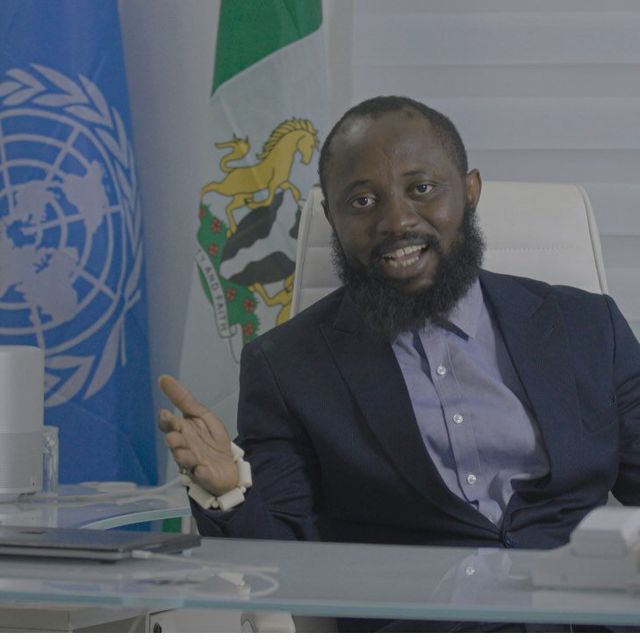Protesting is a fundamental right enshrined in democratic principles, allowing citizens to voice their grievances and demand accountability from their leaders. In Nigeria, the right to protest is particularly significant, given the country’s diverse social, economic, and political challenges. However, the potential for peaceful protest to devolve into chaos is a serious concern. This looming threat poses significant risks, not just to property but also to the most vulnerable members of society—children, women, and young people.
A Right Misused: The Challenge Of Peaceful Protests In Nigeria
While Nigerians have the right to participate in peaceful protests, there is a prevailing concern about the country’s capacity to organize and conduct such demonstrations without descending into violence. The target participants in these protests are often angry and vulnerable groups, including those frustrated by economic hardships, social injustice, and political instability. This anger can easily become a breeding ground for chaos.
The recent history of protests in Nigeria reveals a troubling pattern: peaceful intentions quickly overshadowed by violence and destruction. Hoodlums often hijack protests, turning them into opportunities for looting, vandalism, and other criminal activities. This not only dilutes the original message of the protest but also leads to significant loss of property and life. The destruction of national assets and social service structures during such protests has far-reaching consequences, particularly for the vulnerable populations who rely heavily on these services.
The Impact On Vulnerable Groups
When protests turn violent, the impact on children, women, and young people is often severe. Schools, hospitals, and public utilities are among the first targets of destruction, disrupting essential services. Children are left without education, women without access to healthcare, and young people without safe spaces. The damage to public infrastructure exacerbates the existing challenges faced by these groups, making recovery even more difficult.
In addition, the psychological impact of witnessing violence and chaos can have long-lasting effects on young people, who may already be struggling with the pressures of economic hardship and limited opportunities. The trauma associated with violent protests can erode trust in societal structures and foster a culture of fear and instability.
Seeking Alternative Solutions
Given the risks associated with protests in Nigeria, it is crucial to explore alternative strategies for holding the government accountable. The administration of President Bola Ahmed Tinubu, like any other, can be held to account through various peaceful and constructive means. Dialogue, advocacy, and the use of legal and institutional frameworks are viable alternatives that do not carry the same risks as public demonstrations.
Civil society organizations, community leaders, and influencers can play a vital role in fostering dialogue between the government and the citizenry. These stakeholders can help channel grievances in a manner that ensures they are heard and addressed without resorting to violence. Additionally, leveraging social media and other digital platforms can amplify voices and demands in a controlled and safe environment.
End Note
While the right to protest is a cornerstone of democracy, the potential for such actions to devolve into violence in Nigeria cannot be overlooked. The dangers posed by planned protests – particularly the risk of hijacking by hoodlums – make them a time bomb waiting to detonate. The most vulnerable in society, including children, women, and young people, stand to suffer the most from the fallout.
Therefore, it is imperative for Nigerians to consider alternative methods of holding the government accountable. By engaging in dialogue, advocacy, and using legal channels, citizens can ensure their voices are heard without jeopardizing the stability and security of the nation. In these challenging times, it is not just the right but the responsibility of every Nigerian to seek peaceful and constructive solutions.
A Better Humanity is Possible!
Christopher Chinedumuije (FBU), founder of Goal Prime Organization Nigeria, is a Professor of Disaster Management and Humanitarian Studies.
NB: Opinions expressed in this article are strictly attributable to the author, Christopher Chinedumuije, and do not represent the opinion of CrossRiverWatch or any other organization the author works for/with.
Since You Are Here, Support Good JournalismCrossRiverWatch was founded on the ideals of deploying tech tools to report in an ethical manner, news, views and analysis with a narrative that ensures transparency in governance, a good society and an accountable democracy. Everyone appreciates good journalism but it costs a lot of money. Nonetheless, it cannot be sacrificed on the altar of news commercialization. Consider making a modest contribution to support CrossRiverWatch's journalism of credibility and integrity in order to ensure that all have continuous free access to our noble endeavor. CLICK HERE |
New Feature: Don't miss any of our news again.Get all our articles in your facebook chat box.Click the Facebook Messenger Icon below to subscribe now
Text Advert by CRWatch :Place Yours

Will You To Learn How To Make Millions Of Naira Making Special Creams From Your Kitchen?.Click Here
Expose Your Business And Make More Sales. Advertise On CrossRiverWatch.com Today



Leave feedback about this